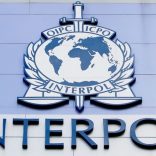Maputo Province: Over 290 Mozambicans repatriated from South Africa await return to areas of origin
Mozambique: “Hidden debts” trial will be held at top security jail – AIM report

File photo: Folha de Maputo
The Maputo City Court has confirmed that the trial of the 19 people accused in the largest financial scandal in Mozambican history, the case of the country’s “hidden debts”, will begin on 23 August, on the premises of the Maputo top security prison.
The large number of accused and the great public interest in the case makes it impractical to hold the trial in a normal courtroom. The major precedent for holding a trial in the prison grounds was the case of the assassination of investigative journalist Carlos Cardoso. The trial of the six men who were eventually convicted of the murder took place in an enormous air-conditioned tent erected inside the prison.
According to a schedule issued by the City Court, the accused will give evidence between 23 August and 1 September. On most days, two of the accused will be heard, one in the morning and one in the afternoon, but on three days the court will try to hear from three of the accused.
Judging from previous trials, it may prove difficult, if not impossible, to keep to this schedule, since the judge, the prosecution and the defence are all entitled to ask questions.
The first of the accused to give evidence will be Cipriano Mutota, the former director of the Office of Studies and Projects of the State Security and Intelligence Service (SISE).
Once the accused have all given their stories, the court will question 67 witnesses. They include the former president, Armando Guebuza, who is scheduled to testify on 6 October. Since Guebuza is a member of the Council of State, a body that advises the President of the Republic, the Council must give its authorisation for his appearance before the court.
Similarly authorisation must be sought from Prime Minister Carlos Agostinho do Rosario for the current Minister of Economy and Finance, Adriano Maleiane, to testify.
Other witnesses include the former governor of the Bank of Mozambique Ernesto Gove, former fisheries minister Victor Borges, former deputy finance minister Maria Isaltina Lucas, and former interior minister Alberto Mondlane.
The term “hidden debts” refers to the loans, in 2013 and 2014, of over two billion US dollars granted by the banks Credit Suisse and VTB of Russia to three fraudulent, security-linked Mozambican companies, Proindicus, Ematum (Mozambique Tuna Company) and MAM (Mozambique Asset Management).
The negotiations leading up to the loans involved at least three corrupt officials from Credit Suisse, who have admitted to taking bribes, and officials of the Abu Dhabi based group Privinvest , notably Jean Boustani. Between them, they ensured that the Mozambican government of the day, led by Armando Guebuza, issued illegal loan guarantees, covering the entire two billion dollars.
The effect of the guarantees was that, if the companies defaulted (as they have done), then the Mozambican government would be held liable for repaying the loans. But the guarantees violated the budget laws of 2013 and 2014 and the Mozambican constitution. The loans and their guarantees have been declared unconstitutional by the Constitutional Council, Mozambique’s highest body in matters of constitutional law.
Privinvest, which became the sole contractor for the three fraudulent companies, sat at the heart of a network of corruption. According to US prosecutors investigating the case, Privinvest used at least 200 million dollars of the loan money for bribes and kickbacks.
Among the 19 accused are Guebuza’s oldest son, Ndambi Guebuza, the former general director of SISE, Gregorio Leao, the head of SISE economic intelligence, Antonio do Rosario, who became chairperson of all three fraudulent companies, Guebuza’s former secretary, Ines Moiane, and Renato Matusse, once an advisor to Guebuza.












Leave a Reply
Be the First to Comment!
You must be logged in to post a comment.
You must be logged in to post a comment.